 Little Brown Pen
Little Brown Pen
Warm? Friendly? Spontaneous? These aren’t perhaps the first words that spring to mind when describing the typical Parisien. However, I can assure you that once you learn to greet and meet like a local, the slightly frosty exterior slowly begins to melt.
The bonjour
In Paris it’s essential to say bonjour many times each day. A Parisian lives and breathes bonjours. To foreigners this may seem excessive, but barge into a shop, skip the bonjour and see what happens. French customer service, already suffering in the image stakes, reaches new levels of indifference.
 Little Brown Pen
Little Brown Pen
If, like me, you work in a large French company this situation can spiral dangerously and risks occupying a disproportionate part of your already coffee-break-filled day. I’ve come to dread lifts: not only is the bonjour compulsory on entering, the bonne journée (have a nice day) is also necessary on exiting. Et oui, this applies each and every time someone hops in or out. Even though my office is on the 5th floor, I’ve started taking the stairs!
Please note that the bonjour shouldn’t be too cheery or effusive for fear of rippling the careful air of nonchalance.
The ça va?
 Mosieur J.
Mosieur J.
In many cases the bonjour is accompanied by the ubiquitous ça va? However, don’t be misled into thinking that this seemingly friendly question implies sincere concern for l’autre. To be cruelly honest, this phrase is utterly meaningless. Unaware of this harsh reality on arriving, I’d enthusiastically embark on long descriptions of my mood, latest activities and general state of well-being. These torrents of emotion were met by incomprehension, silence and nervous smiles. I’ve since learned that the correct response is a brisk ça va, et vous/toi? On reflection, perhaps this is no bad thing; otherwise reaching my desk would become a task of Herculean proportions.
The bise
 Little Brown Pen
Little Brown Pen
To bise or not to bise, that is the question. Parisians are almost as enthusiastic about kissing as they are about bonjour-ing. Before attempting to integrate this highly French greeting, it is worth bearing in mind that:
– It is perfectly acceptable to bise people you’ve never met before. However, this the-more-the-merrier attitude doesn’t extend to work contexts (possibly to prevent lip and/or cheek erosion).
– It’s customary to land two bises. However, if you venture out into the far reaches of province this may increase to 3 or even 4!
– To avoid nose bumping, remember that the kisses usually go from left to right (although this being France, exceptions and rebels abound).
– When greeting large groups of people (e.g. at picnics & soirées) individual bises are required both on arrival and departure. I highly recommend getting there early and leaving late. Under these extreme circumstances, I’m willing to forgo ‘being Parisienne’ to give a friendly and collective wave.
 Marc Mateus
Marc Mateus
I admit that it can take a while to cultivate the nonchalant attitude required to pass for a local. But, with a little effort and a lot less enthusiasm, you’ll soon be ready to bonjour with the best of them.
Courage and bon bise-ing!
Related Links:
- Etant Donné has some more dining etiquette tips, if you missed our articles
- Shannon from the Je Ne Sais Quoi blog has some tips on French office etiquette
- Confused about La Bise? This video might help.
Written by Victoria Wall for the HiP Paris Blog. Looking for a fabulous vacation rental in Paris, Provence, or Tuscany? Check out Haven in Paris.
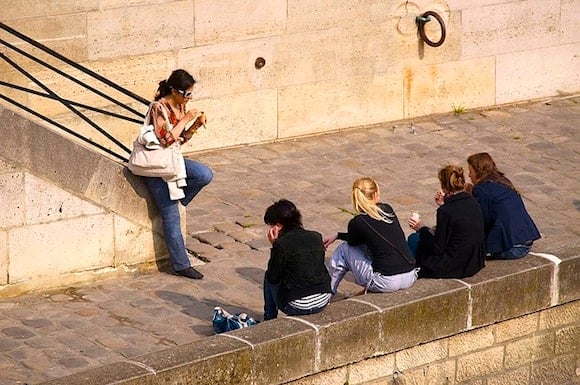
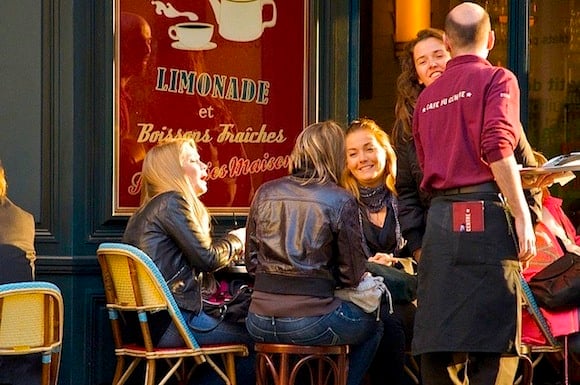
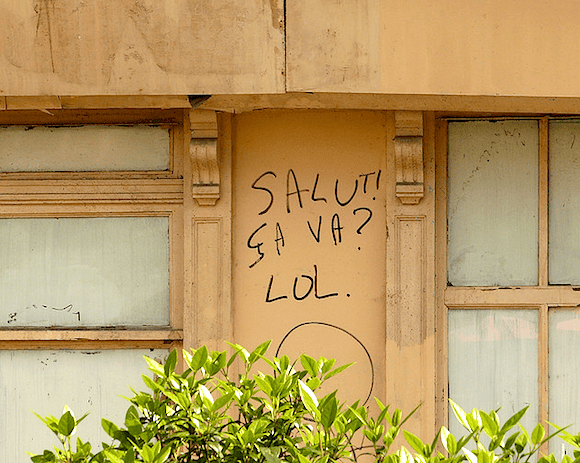
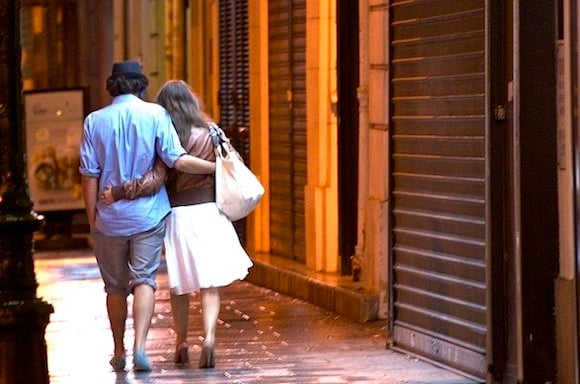
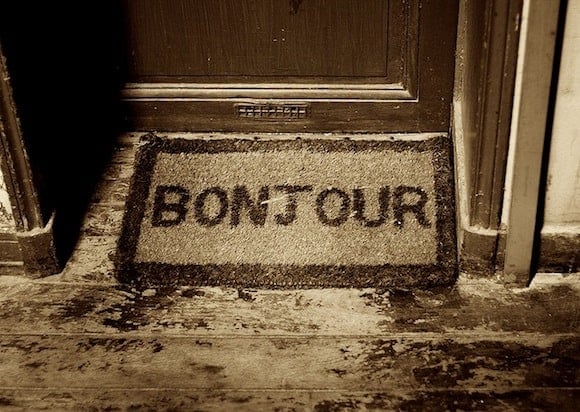



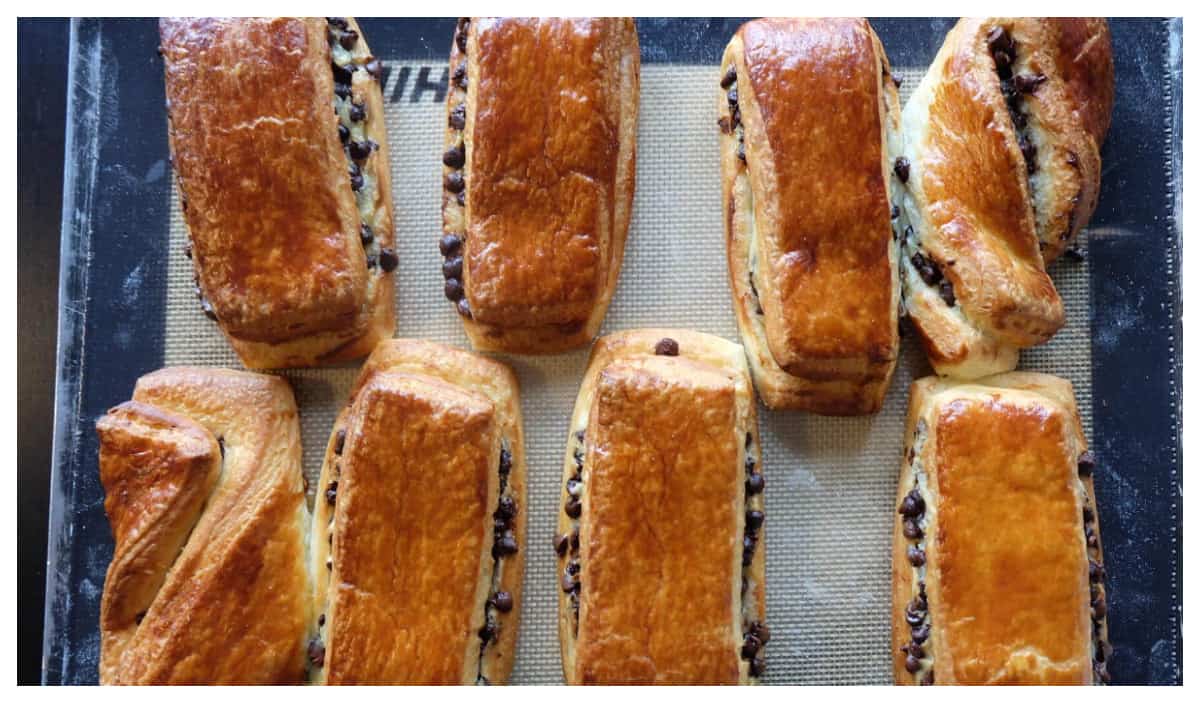
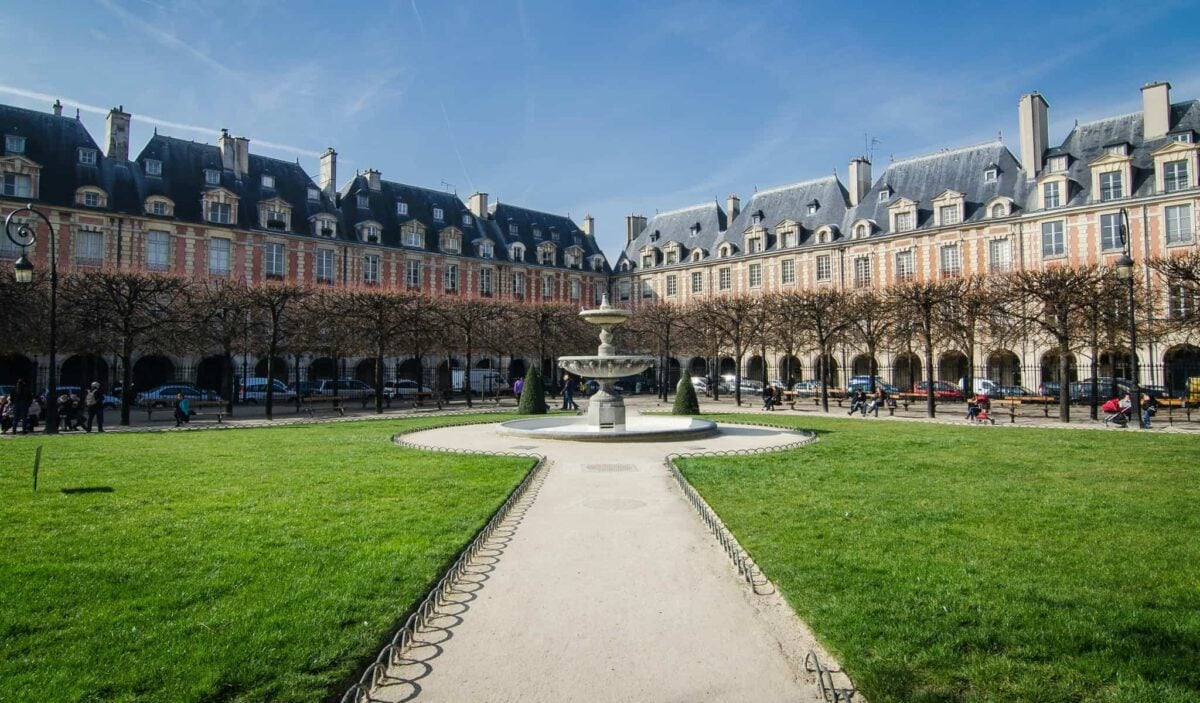
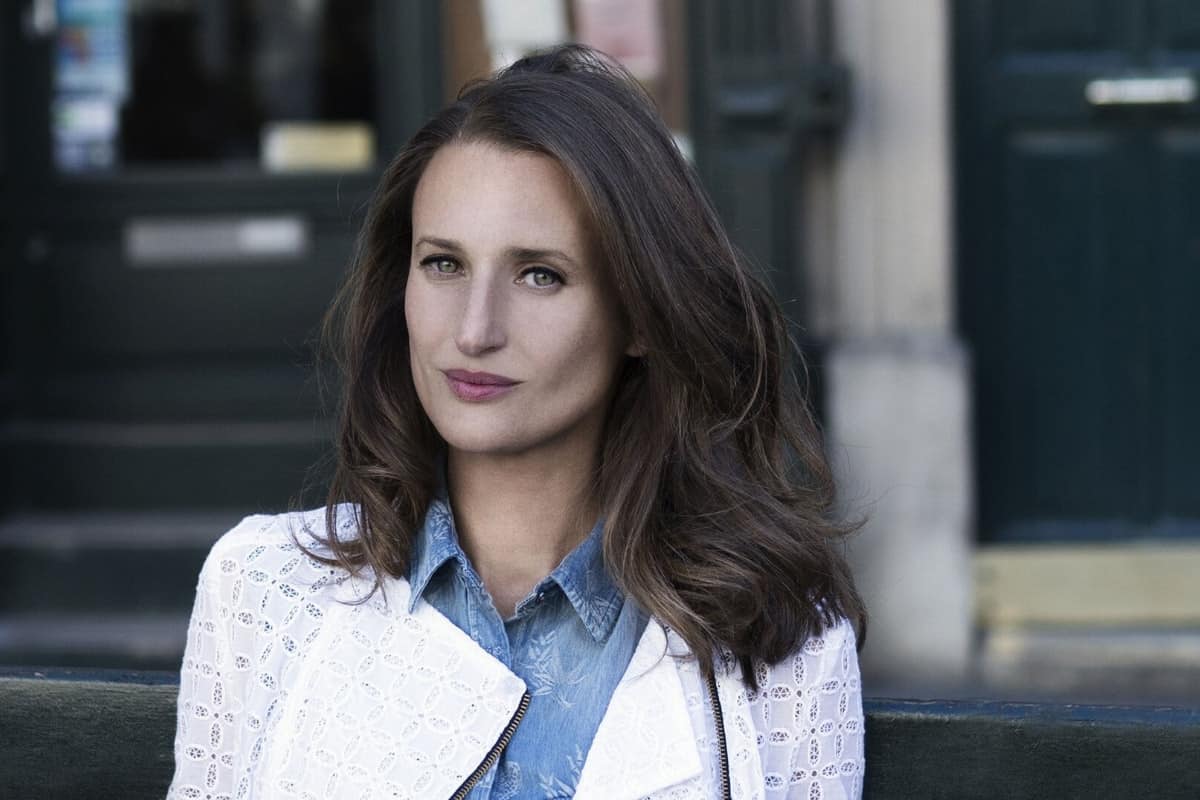
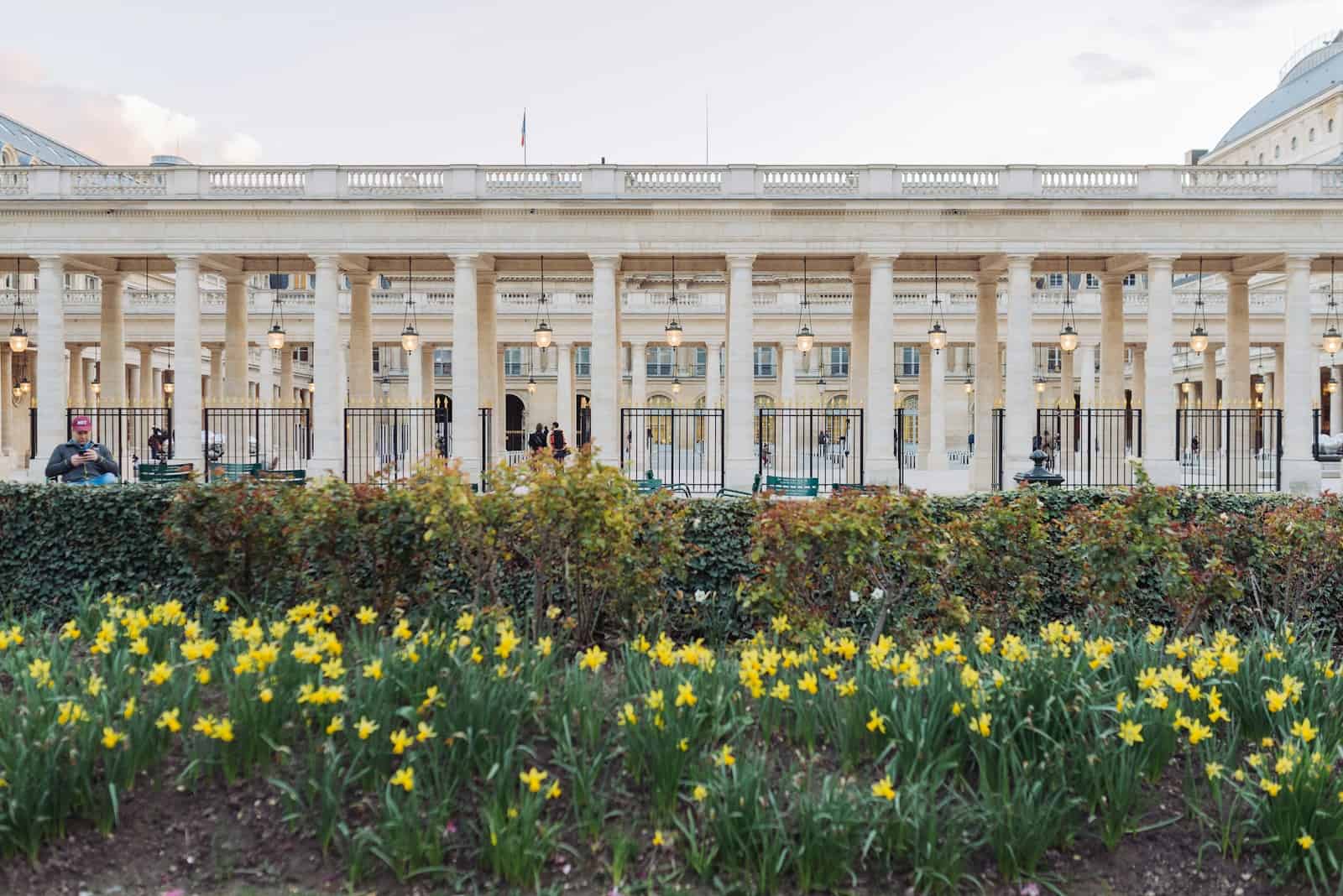
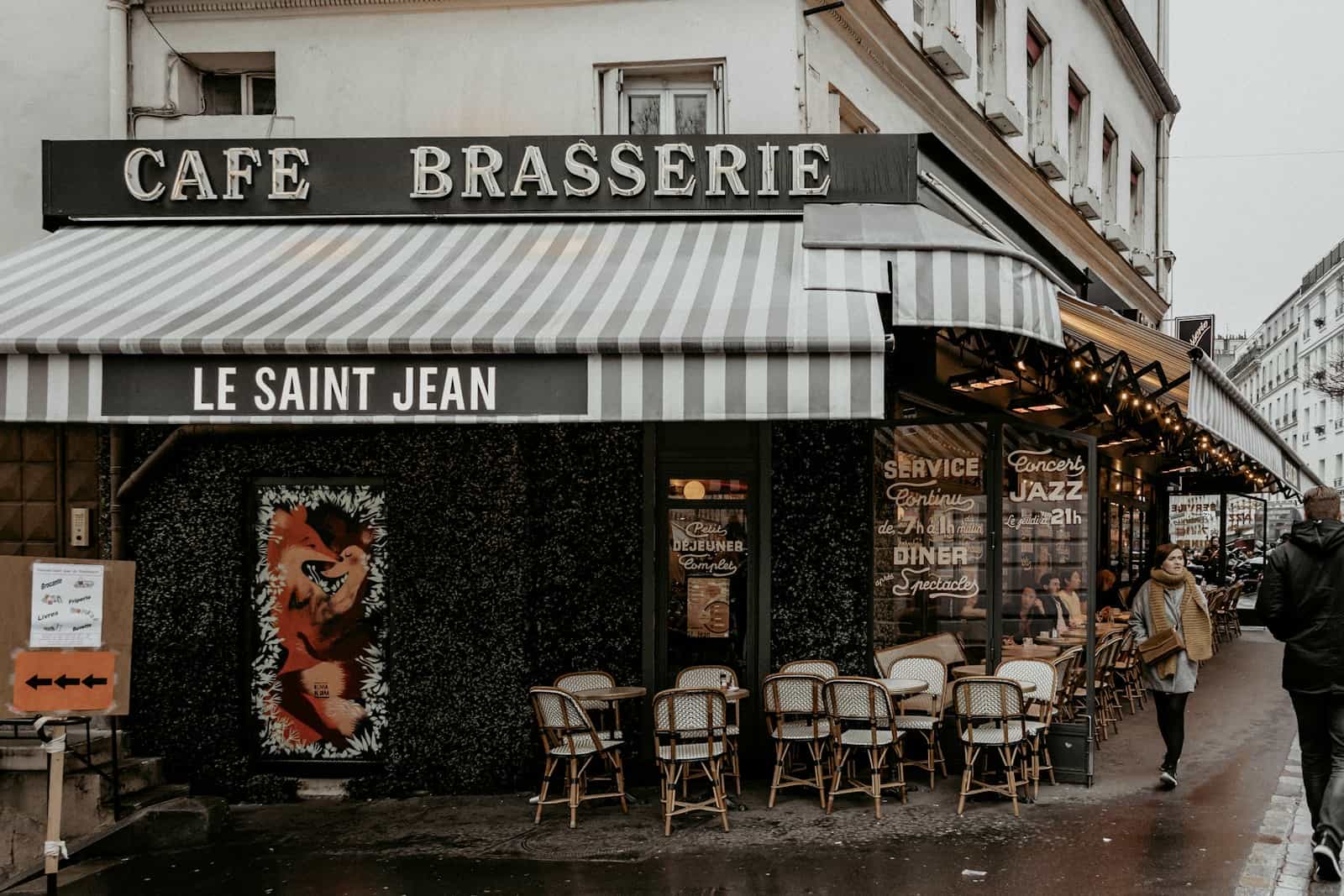
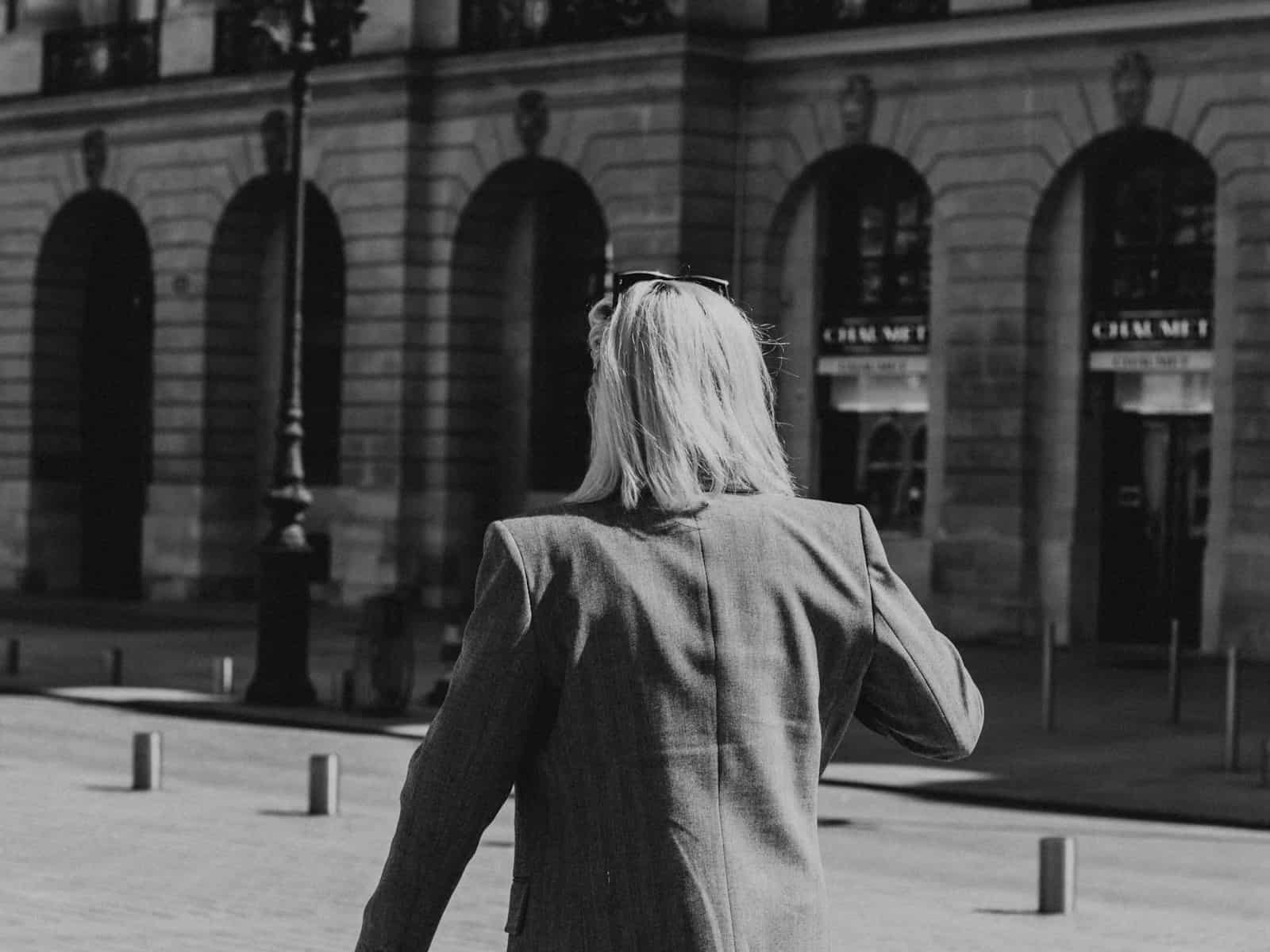




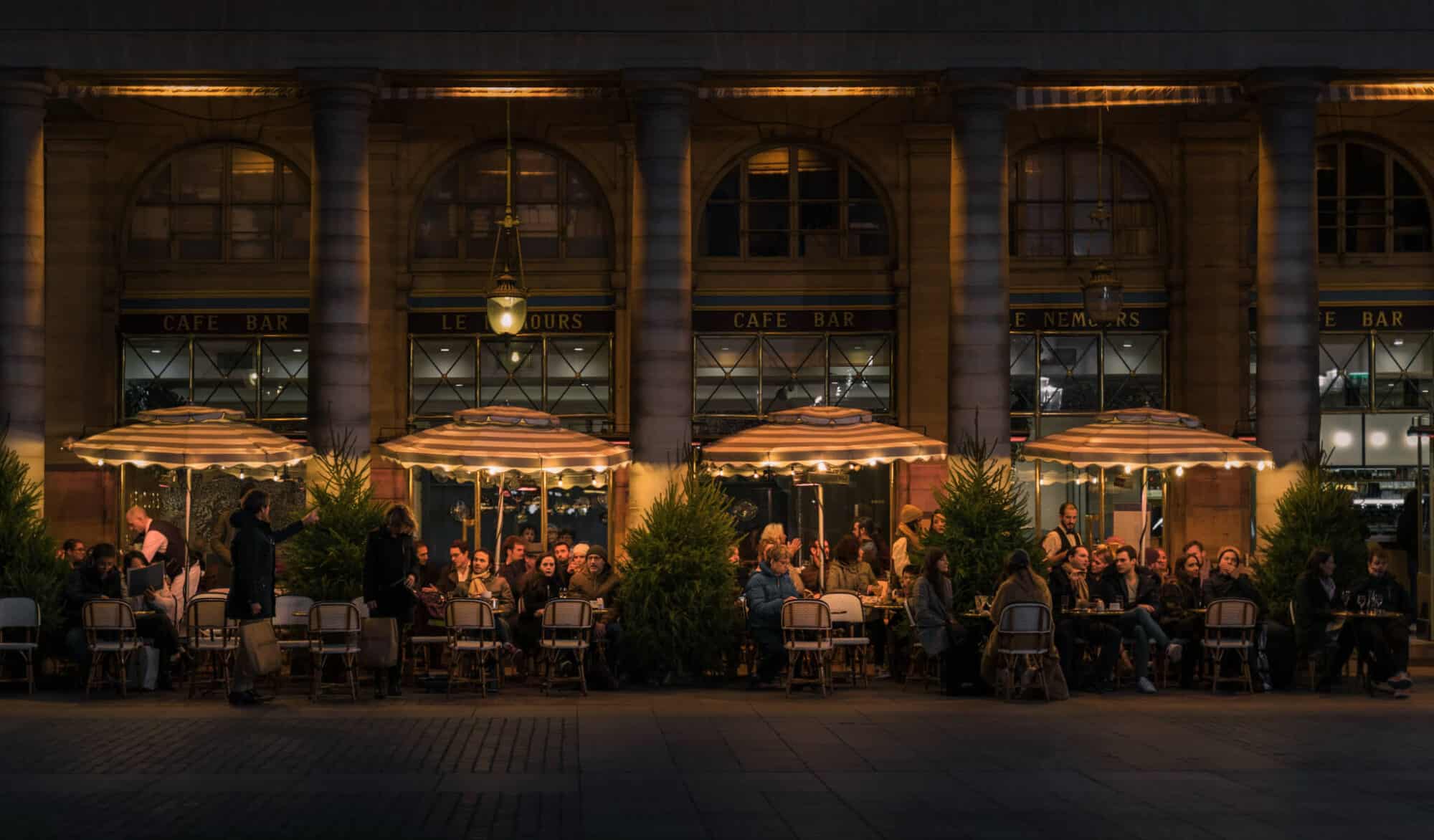


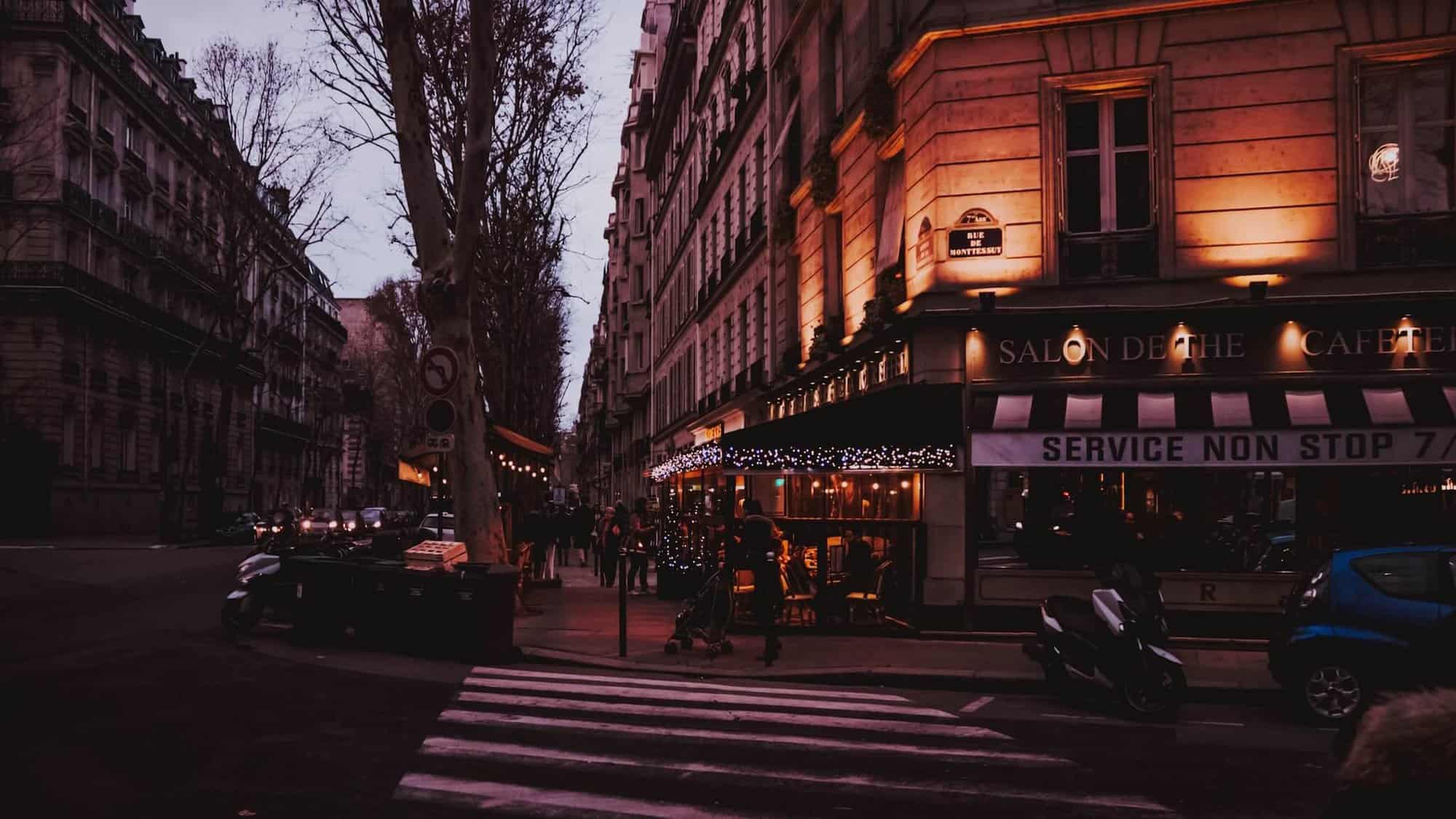




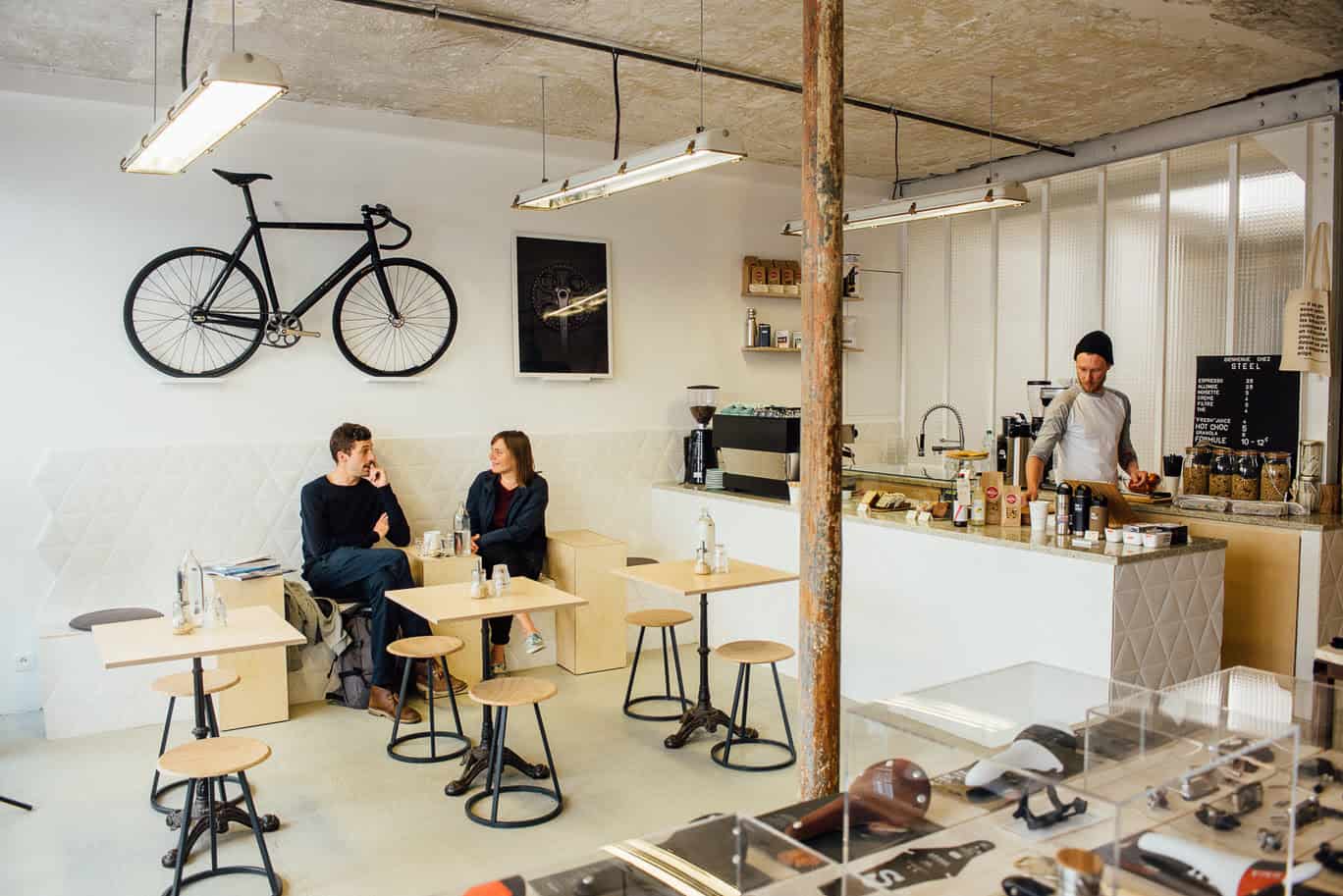

I think you meant the cheek on the left as you’re looking at the person (which is their right cheek). You definitely “go left” first!
I have read about the bisoux in a few spots, but no one mentions — when you say “start on the left” does that mean I go left, OR that I first kiss the other person’s left cheek?
In France you kiss the left cheek first! 🙂
LOVE the post. I was WAY to cheery in my bon jour when I was there LOL. I am sure that gave me away 🙂
We’re far enough from Paris to make 4 bises obligatoire!
totally agree with everything! so true… 🙂
i know many 2 and/or 4 ‘bises’ people here; always start on the left side (the more careful friends take off their glasses first…), after the ‘ca va’ you can still ask: Et comment vas-tu?! THEN, they know you wanna know…
Fantastic post. I used to work on the top floor of my building and really found the part about the bonjour, bonne journee to every entry and exist on the elevator very funny!
And it’s very different how you act publicly versus privately … I have French friends who are incredibly effusive, but when you buy a croissant … it’s a separate world. ; )
Oh my gosh! I loved this post! I wish I had read something like these before I spent time 5 weeks in Paris last fall. I was definitely far to “cheery” with all of my bonjour’s and would have loved to have known to respond with a simple “ca va” vs. attempting to say how I was feeling in my horribly broken French. Can’t wait to go back to Paris and act far more nonchalant! Great post!
Being in Italy can get confusing! They do kiss the opposite of in France, but, …. not always. The problem is if you start one way and they the other you end up in the middle!
I quickly learned in Paris (after a few uncomfortable dinners where I was so stressed about the kissing upon departure of ALL the many people that I stayed WAY too long) that the wave and the ‘ciao tout le monde’ works quite well indeed.
You just reminded me of the expression “Filer à l’anglaise”, or to leave without saying goodbye. How appropriate…
As for bises, I was at a party in Paris and had fun watching an Italian friend do bises right-to-left to everyone. Awwwwwkward!
Love it! I’m there again for September and sooo looking forward to it!
Merci,
Christine
Very well-written, entertaining and helpful information! Headed to Paris next week for three months. A question: I’m looking for short term painting or drawing workshops as a way to improve skills in that realm as well as in conversational french. Will be living in the Marais. Any suggestions on where to look / who to contact?? Merci!!!
Love this…and it seems the “ça va” is equivalent to the American “how are you”…we don’t really want a long explanation, ha. Also, I learned my lesson at a French party where I had to “bise” about 30 people…it was exhausting!! 😉
The left-to-right bis gets me in trouble when I go to the south. I was unaware that I had even developed that left-first habit when I realized all my bis’ in Marseille were starting out with accidental lip contact.
It was also awkward when I found out that men don’t usually bis on their first meeting. I think I worked through half a party worth of men before someone told me.